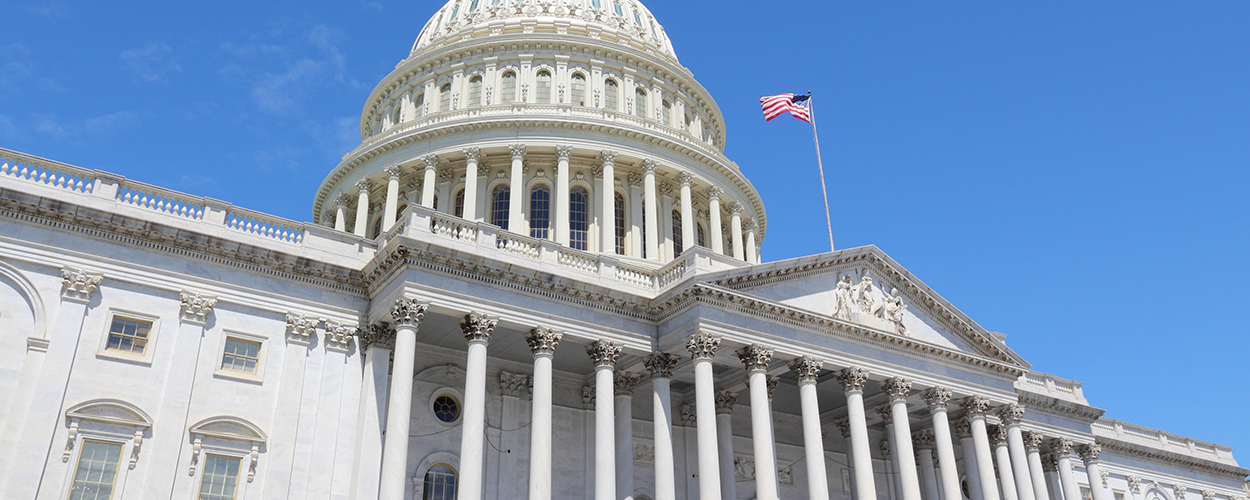This website uses cookies so that we can provide you with the best user experience possible. Cookie information is stored in your browser and performs functions such as recognising you when you return to our website and helping our team to understand which sections of the website you find most interesting and useful.
Business News Digital Labels & Publishers Legal Top Stories
US creator groups welcome proposals for copyright complaint fast-track system
By Chris Cooke | Published on Tuesday 19 July 2016

Creator groups in the US have welcomed legislation proposed in the House Of Representatives last week by Hakeem Jeffries that would introduce a cheaper, quicker system for smaller copyright claims. Though some in the tech community are, somewhat predictably, already expressing concerns.
The Copyright Alternative In Small-Claims Enforcement Act – clumsily named to allow the acronym the CASE Act – would basically establish an arbitration process via which copyright owners could pursue smaller infringement claims without having to go the full litigation route. The statutory damages available via this process would be limited, though could still reach $15,000 per infringement. Much of what Jeffries is proposing was actually first suggested by a US Copyright Office report in 2013.
The aim of the small claims system would be to overcome what many consider a major weakness of copyright law, which is that the law says to sue infringers, but many smaller and individual copyright owners can’t afford to pursue litigation, even if victory in court is pretty much assured.
Such a small claims system might also be relevant in the safe harbours domain, in that while a site like YouTube may be able to hide behind the safe harbour when one of its users uploads content without a licence from the copyright owner, the user has no such protection, except that few rights owners are going to go to the hassle of filing a full-on lawsuit. But an action through this new small claims system might be viable.
Which is one of the reasons why some in the tech community are criticising Jeffries’ proposals, because it could result in a flood of complaints being filed against individuals uploading content to YouTube or similar platforms, or even those tapping the file-sharing networks for music. Which would be rather reminiscent of the unsuccessful sue-the-fans strategy pursued by the US record industry in the early days of file-sharing.
Some copyright owners still pursue that strategy to this day. Writes Mike Masnick on TechDirt: “We already see that [copyright owners] are flooding the federal court system, where multiple rulings against joinder – ie the ridiculous bundling of thousands of possible file sharers together – has meant that when [rights owners] do sue, they’re generally limited in how many people they can sue”.
“Making the process cheaper”, Masnick continues, “but still offering statutory damages amounts that can be quite scary to the average American” could result in a ramping up of actions against individual file-sharers, and/or the sending of letters demanding out-of-court settlements from suspected infringers (what Masnick would call copyright trolling).
But for individual creators – who, in the main, have no interest in targeting thousands of suspected casual file-sharers, though might want to stop people using their content on YouTube channels – Jeffries’ proposals could be liberating, giving artists and songwriters actual rather than theoretical copyright protection.
The US Authors Guild is one of the organisations which has been lobbying for something like this, and its Executive Director Mary Rasenberger told reporters last week: “The legislation will finally provide authors with a means of enforcing their rights. Federal court litigation is unaffordable to most authors and other creators, and so they have been left with unenforceable rights. We look forward to continuing to work with Congress to ensure that the legislation creates a tribunal that is accessible, navigable, and fair to authors – without having to hire lawyers”.
Meanwhile, in a post on The Trichordist, the President of the Songwriters Guild Of America, Rick Carnes, also welcomes the proposals. He writes: “The average cost to bring a single, full-blown copyright infringement claim today is estimated to approach $350,000 in legal fees. At the same time, statutory damages for such infringements are currently capped under the US Copyright Act at less than half that amount per title!”
This means, he says, that “copyright law is useless to songwriters when the cost of enforcement of our rights far exceeds the compensatory damages able to be recovered against infringers”.
Welcoming Jeffries’ proposed new act, Carnes says: “We believe that this bill strikes the right balance between consumers and creators, establishing an alternative, opt-in arbitration system to resolve copyright infringement cases without necessitating the time and expense of filing and defending a ‘Federal Case'”.
In a bid for balance, Jeffries proposes that this new fast track system would also hear complaints from people who feel that a copyright owner is misusing the takedown element of the safe harbour provisions of the US Digital Millennium Copyright Act, especially when it comes to the fair use of copyright material. Though critics might argue that there remain ambiguities in quite how all that should work even in the federal courts, making it harder for an arbitration panel to rule on such matters.
Nevertheless, Jeffries will certainly argue that it’s not just copyright owners who could benefit from his proposed fast track system for copyright complaints. It remains to be seen how the proposals fair in Congress.





